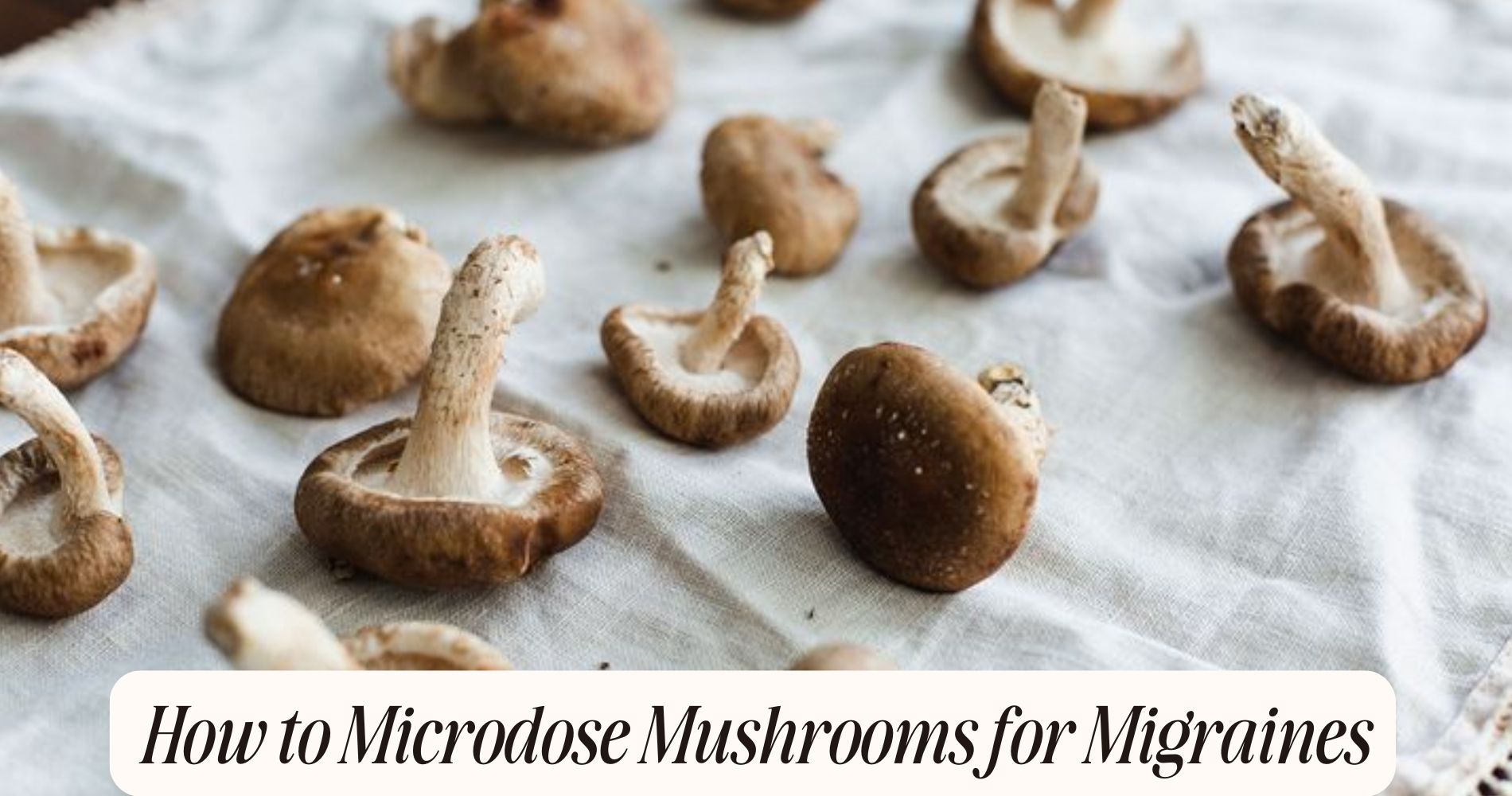
Does Lion’s Mane Increase Testosterone Levels?
Does lions mane increase testosterone? Lion's Mane mushroom may influence testosterone levels, but research is still in early stages. Animal studies suggest potential testosterone increase linked to Lion's Mane supplementation, particularly through its bioactive compounds. These compounds might interact with the neuroendocrine system and stimulate nerve growth factor synthesis, which could indirectly affect hormonal balance. However, human studies remain limited and inconclusive. While it shows promise for cognitive and immune health, relying solely on Lion's Mane for testosterone enhancement isn't recommended. Exploring how it fits into your overall health strategy can provide further insights into its benefits.
Overview of Lion's Mane
Lion's Mane, often recognized for its unique appearance and culinary uses, frequently captures attention in discussions about cognitive health and wellness. This mushroom, scientifically known as Hericium erinaceus, boasts a rich nutritional profile that includes bioactive compounds such as hericenones and erinacines, which are believed to contribute to its neuroprotective effects.
These compounds may promote nerve growth factor (NGF) synthesis, potentially enhancing brain function and memory.
Traditionally, Lion's Mane has been used in various cultures for its medicinal properties. In Traditional Chinese Medicine, it's valued for its ability to improve digestion, boost immune function, and support mental clarity.

Its adaptogenic qualities suggest it may help manage stress, further supporting overall cognitive health.
Recent research has begun to highlight Lion's Mane's potential benefits in neurodegenerative conditions, including Alzheimer's and Parkinson's diseases. While more studies are needed to confirm these effects, the existing evidence points to a promising role in maintaining cognitive function.
Testosterone: What You Need to Know
Testosterone plays a vital role in various hormonal functions that affect your overall health, including muscle mass, mood, and energy levels.
Understanding its health benefits can help you make informed choices about lifestyle and supplementation.
In this section, you'll explore the sources of testosterone and the potential supplements that may help boost your levels.
Hormonal Functions Explained
Hormones play a significant role in regulating various bodily functions, and understanding testosterone is fundamental for grasping its importance in human health. Testosterone, primarily produced in the testes in men and ovaries in women, is essential for maintaining hormonal balance. It influences muscle mass, bone density, and overall energy levels, impacting both physical and mental well-being.
In the context of endocrine health, testosterone serves as a key regulator. It modulates libido, mood, and cognitive functions, directly affecting quality of life. Low testosterone levels can lead to symptoms such as fatigue, depression, and decreased physical performance, highlighting the hormone's role in overall vitality.
It's also important to note that testosterone functions within a delicate system, where its levels are influenced by various factors, including stress, diet, and lifestyle choices.
Maintaining ideal testosterone levels is significant for achieving hormonal balance, as imbalances can lead to substantial health issues. Understanding these hormonal functions not only clarifies testosterone's role but also emphasizes the importance of regular health check-ups to monitor and support endocrine health throughout your life.
Health Benefits Overview
Understanding the health benefits of maintaining optimal testosterone levels is essential for both men and women. Testosterone plays a significant role in various bodily functions, impacting physical health, mental clarity, and overall well-being.
Balanced testosterone levels can enhance cognitive function, leading to improved memory, focus, and mental agility. Research indicates that ideal testosterone can support cognitive enhancement, making it important for maintaining mental sharpness as you age.
Moreover, testosterone is linked to immune support. Studies suggest that adequate levels of testosterone may bolster the immune system, helping your body fend off infections and illnesses more effectively. This immune support can also help in recovery from injuries and illnesses, promoting overall health.
In addition to cognitive and immune benefits, maintaining optimal testosterone levels is important for energy levels, mood regulation, and muscle mass. Low testosterone can lead to fatigue, depression, and decreased motivation, while balanced levels can enhance vitality and resilience.
As a result, recognizing the multifaceted health benefits of testosterone is key to fostering a healthier lifestyle and overall quality of life. By understanding these benefits, you can make informed decisions regarding your health and wellness.
Sources and Supplements
How can you guarantee ideal testosterone levels through diet and supplementation? First, consider incorporating specific foods and supplements known for their potential effects on testosterone. Foods rich in zinc, vitamin D, and healthy fats—like avocados, nuts, and fatty fish—can support hormone production.
For supplementation, you'll find various forms available, including capsules, powders, and tinctures. Lion's Mane mushroom, often discussed for its cognitive benefits, is available primarily in capsule and powder form. While there's limited direct evidence linking Lion's Mane to testosterone increases, its overall health benefits may support hormonal balance indirectly.

When it comes to dosage guidelines, it's essential to follow recommendations provided on the product label or consult a healthcare professional. For Lion's Mane, typical dosages range from 500 mg to 3,000 mg daily, depending on the supplement's concentration.
Additionally, consider other supplements like zinc or ashwagandha, which have more established connections to testosterone levels.
Always verify you're combining these supplements with a balanced diet and a healthy lifestyle for the best results.
The Science Behind Lion's Mane
Lion's Mane mushroom has gained attention for its neuroprotective properties, which may play a role in supporting brain health.
Research into its hormonal effects reveals potential mechanisms of action that could influence testosterone levels.
Understanding these scientific foundations can help you appreciate the mushroom's broader implications for health and wellness.
Neuroprotective Properties Explained
The unique properties of Lion's Mane mushroom have garnered significant attention for their potential neuroprotective effects. Research indicates that this mushroom may contribute to neurogenesis promotion, which is the process of generating new neurons in the brain.
Compounds found in Lion's Mane, such as hericenones and erinacines, stimulate the synthesis of nerve growth factor (NGF), essential for the survival and growth of neurons. By enhancing NGF levels, Lion's Mane aids in maintaining brain health and may help mitigate neurodegenerative diseases.
Studies suggest that these neuroprotective properties can lead to cognitive enhancement, improving memory, focus, and overall cognitive function.
Furthermore, animal studies have shown that Lion's Mane can reduce symptoms of anxiety and depression, further indicating its potential benefits for mental health. While human studies are limited, the preliminary evidence supports the idea that incorporating Lion's Mane into your diet could offer significant advantages for brain health.
Hormonal Effects Research
While research on Lion's Mane mushroom primarily highlights its neuroprotective properties, emerging studies suggest it may also influence hormonal levels, particularly testosterone. Preliminary investigations indicate that Lion's Mane might play a role in maintaining hormonal balance by affecting testosterone regulation.
One study conducted on male rats found that supplementation with Lion's Mane led to increased serum testosterone levels compared to control groups. This raises questions about the potential implications for human health, especially regarding hormonal balance and its significance in various physiological processes.

Research indicates that testosterone plays a crucial role in muscle mass, mood regulation, and overall vitality. Consequently, any substance that may positively influence testosterone regulation deserves attention.
Although the data is still limited and mostly derived from animal studies, these findings hint at a possible connection between Lion's Mane and hormonal health.
As interest grows in natural supplements for testosterone support, more rigorous human studies are essential to establish the exact effects of Lion's Mane on hormonal levels. Understanding these relationships could pave the way for new approaches to managing hormonal imbalances in various populations.
Potential Mechanisms of Action
In exploring the potential mechanisms of action behind Lion's Mane mushroom, researchers focus on its bioactive compounds, particularly hericenones and erinacines. These compounds are believed to interact with the neuroendocrine system, potentially influencing hormonal balance and testosterone levels.
The neuroendocrine interaction between the central nervous system and endocrine glands may play a significant role in how these compounds exert their effects.
Studies suggest that hericenones and erinacines can stimulate nerve growth factor (NGF) synthesis, which might enhance neuronal health and function. Improved neuronal integrity could subsequently influence hormone production, including testosterone.
While the direct link between Lion's Mane and increased testosterone levels remains under investigation, the mushroom's potential for herbal testosterone potentiation is worth noting.
Furthermore, Lion's Mane may help reduce levels of stress hormones, such as cortisol, which can adversely affect testosterone production. By modulating stress responses, Lion's Mane could create a more favorable environment for testosterone synthesis.
Although more research is needed to fully elucidate these mechanisms, the evidence supports the idea that Lion's Mane could positively impact testosterone levels through neuroendocrine interactions and its unique bioactive compounds.
Studies on Lion's Mane and Testosterone
Research into Lion's Mane mushroom and its potential effects on testosterone levels is gaining momentum in the scientific community. Various testosterone studies have aimed to explore how this medicinal mushroom might influence hormonal balance.
Early animal studies suggest that lion's mane may stimulate the synthesis of nerve growth factor (NGF), which could indirectly bolster testosterone production.
One notable study examined the effects of lion's mane extract on rats, revealing a potential increase in testosterone levels alongside improved sexual behavior. However, human studies remain sparse, and the results aren't conclusive.
A few preliminary trials have investigated the lion's mane effects on mood and cognitive function, indirectly hinting at possible hormonal benefits, yet they don't directly measure testosterone changes.

It's essential to approach these findings with caution. While there's some evidence suggesting that lion's mane might play a role in enhancing testosterone levels, more rigorous human studies are needed to substantiate these claims.
Until then, you should consider lion's mane as a part of a broader strategy for health, rather than a guaranteed solution for boosting testosterone.
Other Health Benefits of Lion's Mane
Lion's Mane mushroom consistently stands out for its diverse health benefits beyond potential testosterone enhancement. One of the most notable advantages is its ability to support cognitive enhancement. Research indicates that compounds in Lion's Mane, particularly hericenones and erinacines, can stimulate the production of nerve growth factor (NGF). This promotes neurogenesis and may improve memory and overall cognitive function. If you're looking to sharpen your mental acuity, incorporating this mushroom into your diet might be beneficial.
Additionally, Lion's Mane offers significant immune support. Studies suggest that it can enhance the activity of various immune cells, including macrophages and natural killer cells, which play vital roles in your body's defense system.
By bolstering your immune response, Lion's Mane can help you fend off infections and maintain overall health. Moreover, its antioxidant properties contribute to reducing inflammation, further supporting a healthy immune system.
Natural Ways to Boost Testosterone
Boosting testosterone levels naturally involves a combination of lifestyle changes and dietary adjustments.
First, consider your dietary changes; incorporating healthy fats, lean proteins, and plenty of fruits and vegetables can support hormonal balance. Foods rich in zinc and vitamin D, such as oysters and fatty fish, are particularly beneficial.
Next, exercise routines play an important role. Engaging in regular strength training and high-intensity interval training (HIIT) can stimulate testosterone production. Aim for at least 150 minutes of moderate aerobic activity weekly, along with muscle-strengthening exercises twice a week.

Herbal supplements like ashwagandha and fenugreek may also help enhance testosterone levels, although you should consult a healthcare professional before starting any new supplement.
Lifestyle modifications are essential as well. Prioritize stress management techniques, such as mindfulness or yoga, to lower cortisol levels, which can negatively impact testosterone.
Additionally, focus on improving sleep quality; aim for 7-9 hours of restorative sleep each night.
Final Thoughts on Lion's Mane
When exploring natural methods to enhance testosterone levels, it's important to consider the potential benefits of various supplements, including Lion's Mane mushroom. This unique fungus has garnered attention for its potential neuroprotective qualities and its role in promoting cognitive function.
However, the lion's mane and testosterone relationship remains less clear. Current research primarily highlights Lion's Mane's ability to stimulate nerve growth factor (NGF) production, which may indirectly support overall hormonal health.
While some studies suggest a connection between improved cognitive function and hormone balance, direct evidence linking Lion's Mane to increased testosterone levels is still limited.
If you're thinking about incorporating Lion's Mane into your regimen, it's important to approach it as a complementary strategy rather than a primary solution for boosting testosterone.
You should also consider other lifestyle factors that play significant roles in hormone production, such as diet, exercise, sleep, and stress management.
Enhance Your Wellness with 10-IN-1 MUSHROOM GUMMIES
Curious about the benefits of mushrooms while exploring does Lion’s Mane increase testosterone? Well Gummies’ 10-IN-1 MUSHROOM GUMMIES provide a convenient and tasty way to enjoy the power of 10 functional mushrooms, including reishi, known for supporting mental clarity, energy, and immune health. These vegan gummies are crafted to fuel your brain and body with balanced energy and sharper focus. With a delicious wild berry flavor, they make daily wellness simple and enjoyable—no jitters, no crash, just sustained support for your overall well-being. Enjoy the natural benefits in a chewable form that tastes as good as it feels.
Frequently Asked Questions
Can Lion's Mane Be Taken With Other Testosterone Supplements?
You can generally take Lion's Mane with other testosterone supplements, but watch for potential interactions. Research suggests exploring testosterone synergy, as combining these might enhance overall benefits, but consult a healthcare professional for personalized advice.
Are There Any Side Effects of Lion's Mane?
When considering Lion's Mane, it's essential to recognize that side effects are generally rare. Some users report mild digestive upset or allergic reactions, but most experience no adverse effects when taken as recommended. Always consult a healthcare professional.
How Long Does It Take to See Effects From Lion's Mane?
You might notice Lion's Mane benefits within a few weeks of consistent use. While individual experiences vary, many report improved cognitive function and potential boosts in testosterone production, highlighting its positive effects over time.
Is Lion's Mane Safe for Long-Term Use?
Lion's Mane is generally considered safe for long-term use, especially at recommended dosages. However, individual responses may vary. Monitoring for any adverse reactions can help guarantee you're aware of potential long-term effects.
Can Lion's Mane Improve Mood Alongside Testosterone Levels?
Lion's Mane may enhance mood while potentially offering a testosterone boost. Research suggests its neuroprotective properties can elevate overall well-being, but more studies are needed to confirm these effects on mood and hormone levels.
Conclusion
To sum up, while lion's mane mushroom offers several health benefits, its direct impact on testosterone levels remains inconclusive. Current studies do not provide definitive evidence supporting a significant increase in testosterone due to lion's mane consumption. If you're looking to boost testosterone, it's important to explore other natural methods while consulting healthcare professionals for personalized advice. Lion's mane can still play a role in overall health, but relying solely on it for testosterone enhancement may not be effective.




